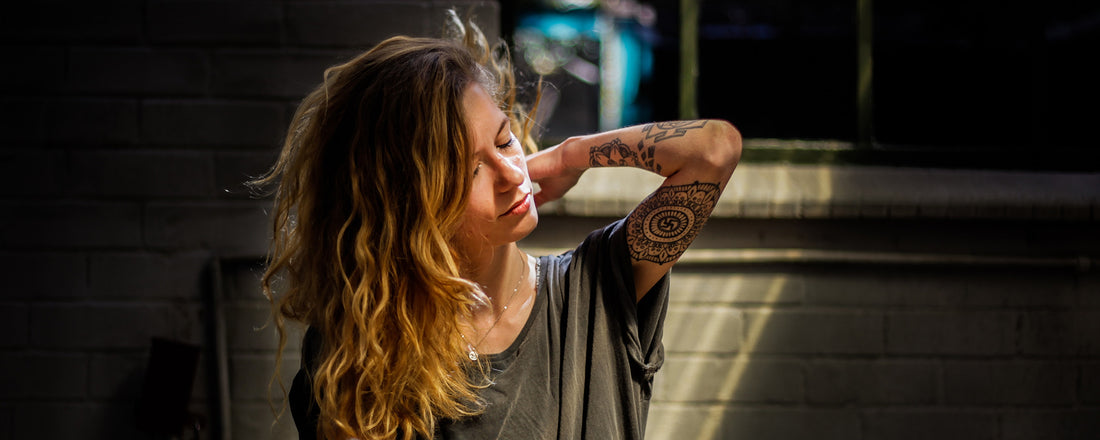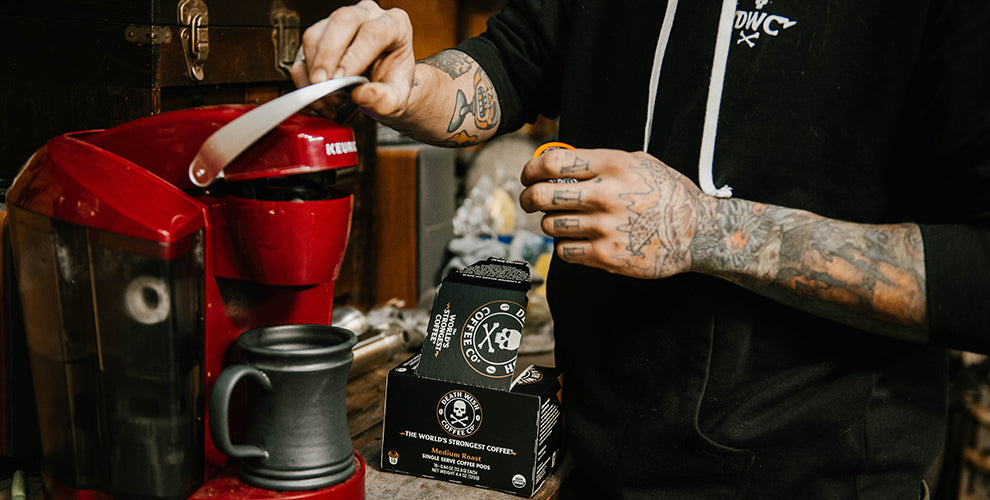
How to Avoid a Caffeine Crash
Coffee TalkWe've all been there. It's 2 p.m., you're staring at your computer and there's no end in sight. You can barely keep your eyes open, and the last thing you want to do is fill out that spreadsheet your boss needs by tomorrow morning.
If you drink a lot of coffee in the morning, this is more likely to happen to you. Yes—the dreaded caffeine crash. A caffeine crash usually happens a few hours after a person has consumed a moderate-to-high dose of caffeine after being tired. (And who isn't tired when they have to get up at 6 a.m. for work?)

Symptoms of a Caffeine Crash
After the caffeine in your body wears off, you're likely to experience these symptoms of a caffeine crash:
- Extreme tiredness
- Inability to concentrate
- Irritability
- Dozing off
Why Do Caffeine Crashes Happen?
The answer: Caffeine blocks adenosine in your brain, which is what your brain produces when you're tired. But when you're drinking coffee, your brain doesn't stop producing adenosine. Instead, caffeine looks like adenosine and binds to the nerve cell, blocking the adenosine from attaching. So, when the caffeine wears off, adenosine floods your brain's receptors, making you tired and ready for bed.
7 Tips to Avoid a Caffeine Crash
1. Spread out your caffeine consumption throughout the day.
I know it can be hard, but don't slam your pot of coffee as soon as you wake up. Spread out your coffee consumption throughout the day so you don't crash in the afternoon. In addition to making you less irritable, sipping strong coffee all day long will make you like your co-workers more, too.
2. Get an adequate amount of sleep.
Starting the day with normal adenosine levels will prevent a crash. The best way to do this? Get a good night's sleep. For adults, that's between 7 and 9 hours a night.
3. Make sure you're drinking enough water.
Drinking water in the morning when you get up will save you in the long run. It helps with preventing headaches, keeping you hydrated and is also essential to brain function—it all goes back to adenosine.
4. Don't drink coffee on an empty stomach.
Food gives you natural energy and helps you last throughout the day. Caffeine, on the other hand, is a temporary source of energy. Without real food, your body will feel fatigued faster. Plus, coffee on an empty stomach can cause stomachaches, so in addition to feeling tired, you can feel sick too. Even if you don't have time to make a full breakfast, take some granola bars to go or make oatmeal at work, and make sure you're eating enough throughout the day.
5. Eat a diet that balances your blood sugar levels.
If your blood sugar is all over the place, the symptoms of a caffeine crash can become amplified. When blood sugar levels rise, you can start to feel annoyed, anxious or tired, which causes most of us to grab another cup to cure those feelings. As you eat foods that help balance blood sugar levels, like seafood, pumpkin and beans, the symptoms of a caffeine crash won’t be as noticeable. Think of it as Liquid I.V. for your hangover.
6. Don’t drink coffee before bed.
Now, there are a chosen few that can drink coffee right at 11:30 p.m. and be asleep within 10 minutes, but let’s be real—most of us are not a part of that group. Cut yourself some slack and ease off the coffee at least 3-5 hours before bed if you can help it. Save that strong cup of Death Wish Coffee for the morning—trust us.
7. Exercise.
Getting out and exercising can help with caffeine withdrawal. Now, we’re not talking about running a marathon or hitting your PRs at the gym—just a brisk walk can reduce the symptoms of a caffeine crash and boost your memory, all while closing those rings on your smartwatch.
When you follow these steps, you'll be ready to go all day long. And if you don't feel like trying them, take a coffee nap instead.
[Featured Image Credit: Keenan Constance via Unsplash]
RELATED: Sleepy After Coffee? Here's the Fix
